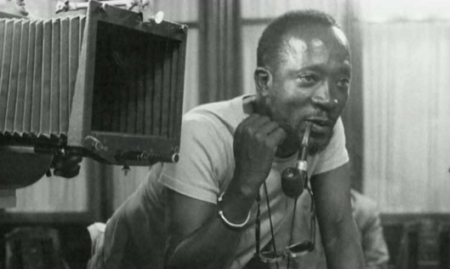Issue number four of A Newcomer’s Guide to La Nouvelle Vague is here! In this issue, we begin with Agnes Varda’s 1965 Le Bonheur/Happiness, which explores the dark underbelly of the image of happiness. Next, the 1966 Un Homme et Une Femme/A Man and a Woman, directed by Claude Lelouch, explores the question: who can you truly love? Then, we move onto discussing Black Girl from 1966, directed by Ousmane Sembene, which follows a Senegalese maid who visualizes a sophisticated life working for a wealthy French family, but her dreams slowly get crushed by her reality. Finally, A Modern Coed (1966) directed by Eric Rohmer, is a brief 18-minute documentary that examines the life of women in college during the 1960s.
Agnes Varda’s films in particular are always a joy, and as our only female director we’ll be discussing, it’s beautiful to see Le Bonheur certainly delivering the same creativity as Clèo from 5 to 7, which was included in Issue #3. We also meet Ousmane Sembene, our first non-white director in our French New Wave journey. His short fifty-five-minute film is still incredibly relevant today, discussing the treatment of non-white people.
The French New Wave was all about personal creativity and treating film as a journal, utilizing the camera like a pen, as famous film critique Alexandre Astruc calls it, la caméra stylo. While each film does have its own stylistic direction, all four films focus on essential matters in society that are still just as critical now, decades later, but in their own ingenious ways. They could be subtle, like how Varda’s film presents feminism, or very straight forward like how Black Girl presents racial inequality. Either way, the issues get across to us by the hand of the brilliant French New Wave directors who knew exactly how to present them through their own sociocultural backgrounds.


Recent Comments